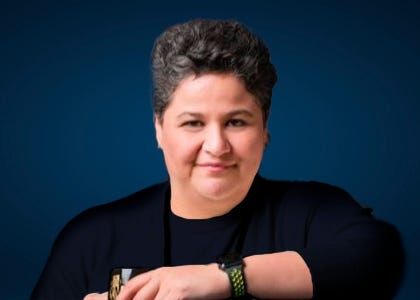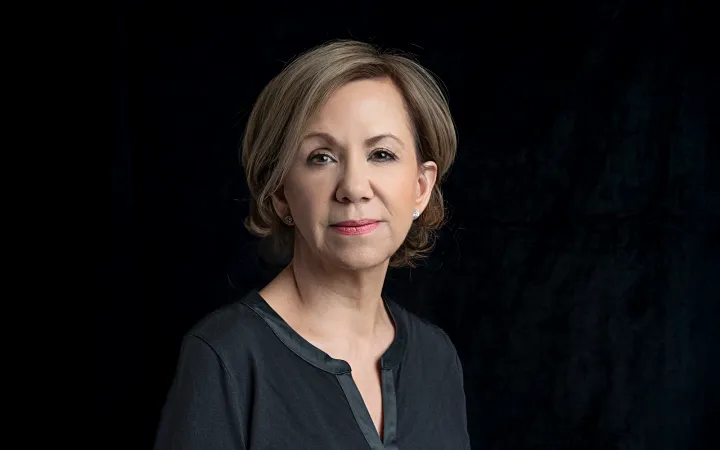Por Marilú Acosta
El 10 de octubre se conmemoró el día mundial de la salud mental. Coincidentemente, esta semana leí “El peligro de estar cuerda” (marzo 2022) de Rosa Montero (1951 -, Madrid), se trata de un multiverso que es novela autobiográfica, data storytelling (texto de divulgación científica), chismógrafo de vida, diagnósticos y tratamientos de escritores y lectores, incluso es una historia de detectives quizá ficción, quizá real. Leerla es un buen comienzo para entender la salud mental.
También esta semana dos activistas de JustStopOil.org aventaron dos latas de crema de jitomate Heinz a uno de los cuadros de Girasoles (1888, Arles, Francia) de Vincent Van Gogh (1853-1890, Países Bajos). ¿Por qué habrán escogido vandalizar ese cuadro en particular? ¿Por ser uno de los autores más caros? ¿No les gusta el cuadro? ¿No había tanta seguridad? ¿Porque Van Gogh luchó por los mineros? ¿Por vender un cuadro en vida? ¿Por sus problemas mentales? ¡Quién sabe!
Sin diagnósticos definidos, no se duda que Van Gogh tenía problemas mentales. En sus últimos meses de vida, que pasó principalmente en un hospital psiquiátrico, Van Gogh pintó, en promedio, casi un cuadro cada dos días y las últimas semanas más de un cuadro por día. Rosa Montero se pregunta: ¿Habría escogido Van Gogh ser menos genial y no sufrir tanto? Imposible saberlo.
El vínculo de la genialidad con la locura es cuestionarnos: ¿todo genio está loco? O ¿todo loco es un genio? Vincent Van Gogh es un genio de la pintura. También un paciente psiquiátrico. Un loco. Con sus pinceladas y sus colores representa la esencia del ser humano. Cuando vemos un cuadro de él, algo en nuestro interior se mueve. Encontramos eco a lo que no podemos poner en palabras. Todos, en algún momento de nuestra vida pasamos por momentos difíciles y sabemos que no estamos solos porque el arte nos acompaña.
Después de vandalizar la obra de arte, una de las responsables preguntó: “¿Qué vale más el arte o la vida? ¿Vale más que la comida? ¿Más que la justicia?”. En mi opinión, el arte es vida más allá de la muerte y de la vida misma, el arte es alimento para muchas almas y el arte genera una justicia cuando desde su mirada nos expresa lo que la sociedad quiere hacer invisible. También comenta, mientras temblaba, “hay millones de familias con frío y con hambre que no pueden pagar el combustible necesario para calentar una lata de sopa”.
La salud mental es también tener lógica en los pensamientos, tener un objetivo y saber crear caminos para llegar a ellos. Una mente saludable es la que sabe llegar a sus objetivos, sabe identificar el mango del sartén para tenerlo en la mano y negociar lo que quiere. Just stop oil se describe como una coalición de grupos que trabajan juntos para asegurarse que el gobierno (de Reino Unido) se comprometa a terminar todas las nuevas licencias y permisos para la explotación, desarrollo y producción de combustibles fósiles en ese país. Yo pienso que antes de realizar algo, habrá que preguntarse si abona para el objetivo de la causa. ¿El gobierno de Reino Unido detendrá sus vínculos con combustibles fósiles por un pedazo de tela con colores y jitomate encima? ¿Hará más barato lo necesario para calentar una lata de sopa?
¿Qué es lo que realmente lograron? Dar a conocer mundialmente la organización y quizá donativos de quienes coincidan con ellas.
No destruyeron la obra de Van Gogh porque seguirá tocando las almas mientras siga existiendo una réplica o una foto de sus obras. No propusieron el cómo desarmar nuestra vida construida sobre todo lo que proporcionan el gas y el petróleo. No crearon una batería verde que guarde energía solar. Si viviera Van Gogh, ni siquiera lo escandalizarían. Pensaba de sí mismo como un fracaso, y estaba desapegado de sus obras, más no del acto de pintar; pintaba encima de sus cuadros por falta de dinero y acceso a lienzos, sin importarle que se perdiera la obra anterior.
Sopas más, sopas menos, la tristeza durará para siempre, como dijo Van Gogh en su lecho de muerte. Y todos, en el mundo, estamos bien tristes.
@Marilu_Acosta





Comments ()